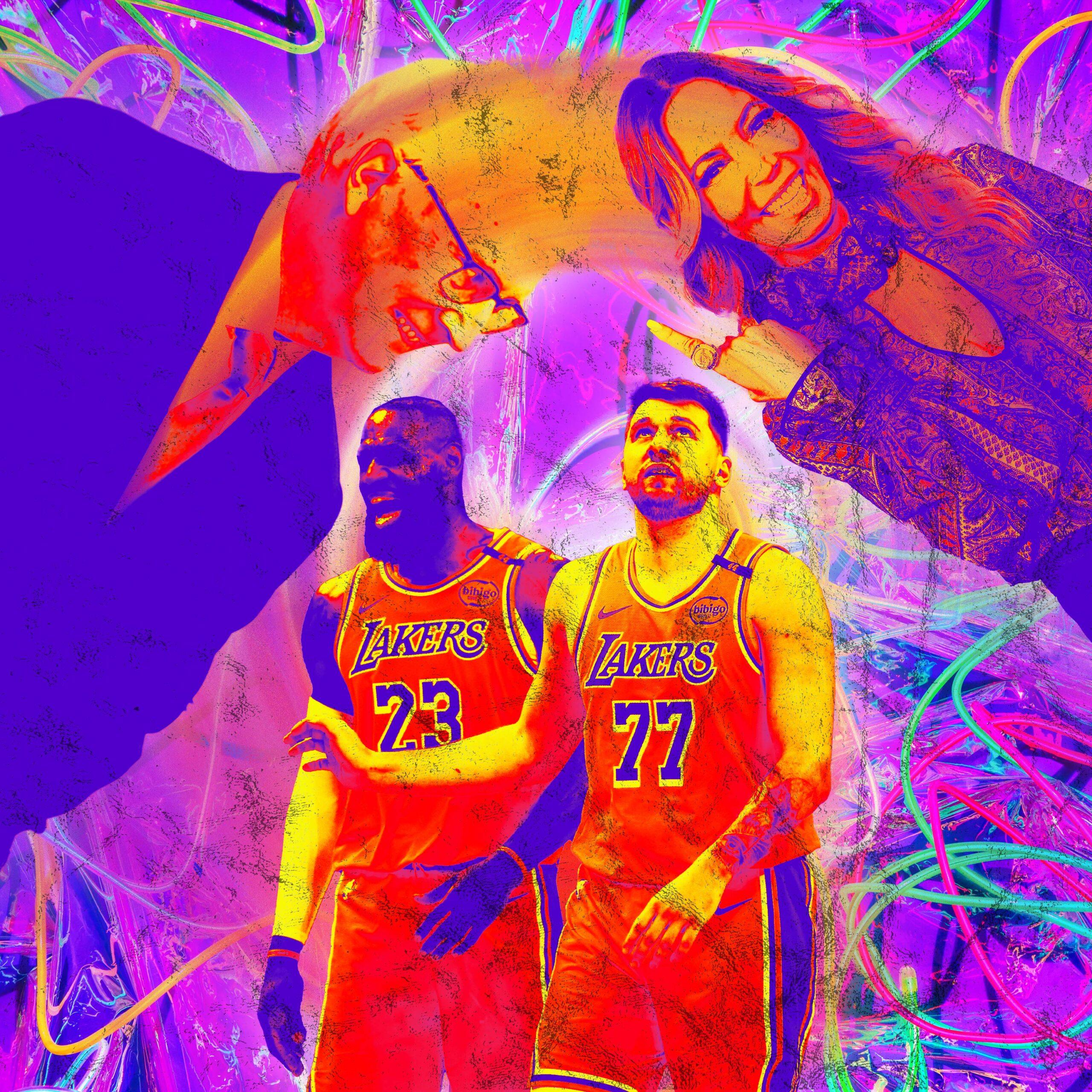
For the first time in nearly half a century, the NBA’s most famous franchise has been sold. On Wednesday, Shams Charania reported that Mark Walter (who also owns the Dodgers) has agreed to purchase a majority stake in the Los Angeles Lakers for a valuation of $10 billion, making this the largest sale of a professional sports team ever. It’s the end of an era for L.A., one that began in 1979 when Jerry Buss purchased the team for $67.5 million and that continued through the tenure of his daughter Jeanie, who succeeded him in 2013. The sale—as well as the gobsmacking price tag—has major implications for both the Lakers and the NBA as a whole. With a new franchise player in Luka Doncic and new ownership stewarding the organization (although, perhaps in homage to Mark Cuban, Jeanie Buss will reportedly continue to run the team for “at least a number of years”), L.A. will be looking to build the sort of sustained success that turned it into the NBA’s most expensive team in the first place. The Lakers are just the latest franchise to change hands—following the Boston Celtics ($6.1 billion) in March and the Mavs ($3.5 billion), Hornets ($3 billion), Bucks ($3.5 billion), and Suns ($4 billion) in 2023. To help unpack the news, we posed a handful of questions to our writers asking what we know about Walter and what comes next for L.A.
What kind of team owner is Mark Walter?
Ben Lindbergh: If you’re a basketball-first fan who knows nothing about Mark Walter, don’t feel bad: Most baseball-first fans know nothing about Mark Walter, too. (Which is, in itself, something worth knowing.) Walter is one of the least visible owners in MLB, which is quite an accomplishment considering that he owns one of its most visible franchises. The Dodgers may seem like supervillains at times, but Walter himself has escaped notoriety, which is just the way he wants it.
Walter took over the Dodgers during the 2012 season, which would be their third in a row without a playoff appearance. Previous owner Frank McCourt had run his own finances—and by extension, the team’s—into the ground (although he got to keep the parking lots). Walter immediately raised the team’s payroll from 14th in 2012 to second in 2013 (and then, the following season, first). Since Walter’s first full season at the helm, the Dodgers have won the most games in the majors, qualified for the playoffs 12 times in a row—with a pending 13th appearance that would take the team to within one year of the longest streak ever—and claimed two titles, all while cultivating a reputation as the best-run franchise in the sport. If we account for the modern era’s parity and playoff randomness, they’re arguably the most successful club in baseball history. Meanwhile, Walter has avoided the spotlight, entrusting the team to president and CEO Stan Kasten, president of baseball operations Andrew Friedman, manager Dave Roberts, and the public face of the ownership group, who may be familiar to Lakers fans.
Thanks to the second apron, even Walter’s deep pockets can’t give the Lakers the payroll advantage his baseball team enjoys. But the Dodgers’ dominance extends to the team’s entire infrastructure and brand: scouting, player development, analytics, marketing, continuity. Those qualities could transfer to the NBA, along with Walter’s other tools. Walter is well financed; he has ample multisport experience; he hires well; he stays out of the way, aside from signing huge checks; he isn’t ancient by sports-owner standards or evil by private-equity billionaire standards. He also isn’t active on Instagram. If you want your team’s owner to become a character on an HBO show, Walter is the worst-case scenario. If you want him to bring back the glory days of a storied franchise without bringing much attention to himself, he might be the best. He’s already done it once.
So what’s the first order of business?
Howard Beck: At a glance, this is a fantastic time to become the first new Lakers owner in 46 years. They’re anchored by an all-time legend, LeBron James. (Awesome!) They just acquired Doncic, one of the best players on the planet—a deal that should make them a top-tier playoff team for years to come. (Woot!) But the hard part is just beginning.
James turns 41 in December and might have just a year or two left before retirement. Doncic, just 26, is eligible for a four-year, $229 million extension in August—and without it, he could leave as a free agent in July 2026. Remember, the Mavericks decided that they would rather trade Doncic than pay him the $345 million he would have been eligible for had he stayed in Dallas. There were legitimate concerns about his offseason conditioning and work habits. For all his talent, there is some risk here. And the Lakers have a lot of work to do to build a contender around him.
Then there are operational issues. Should Walter stick with team president Rob Pelinka? Would he potentially bring back franchise legend (and Dodgers partner) Magic Johnson, who had a falling-out with Pelinka years ago? And how long will the Lakers be content as renters at L.A.’s downtown arena? Is it time to follow the Clippers’ lead and build their own home? The Buss family didn’t have the wealth to do so. Walter does.
How do you process this news as a Lakers fan?
Lex Pryor: There is the part of me that, as a proper front-running Lakers fan, twiddles his digits from a plush swiveling chair in a conference room that may or may not be hidden within a subterranean—probably volcanic—lair. (I hesitate to imagine anything more on brand for late-stage Lakerdom than the act of stealing a news day from an NBA Finals that L.A. didn’t even sniff.) This involuntary response is, thus, followed by an immediate influx of dopamine at the prospect of being handed the one thing that hadn’t been handed to me in NBA fandom before: a blank check. Add to that the chronic butterflies brought about by the possibility that some higher power (Walter) might eventually spare me from having to watch Pelinka recite the story of the Israelites, and I’m doing pretty well.
Now, in the back of my head, I am just a wee bit uncomfortable with my sports teams being owned by private equity groups, but given that there are insider traders, tech robber barons, and Persian Gulf investment funds (it appears I may have spoken too soon) swimming around in these waters, silver spooners can’t be choosers. What I know about Walter and Co. is that they pay for the best—staff, analytics, executives, coaches, and players. When you do that, from this kind of perch, whether it’s fair or not, it’s only a matter of time before you’re playing regularly in June. Just please, for the love of all things holy, no hostage White House visits afterward.
Why did this sale happen now?
Michael Pina: Why did the Buss family’s decision to sell the Los Angeles Lakers drop during the NBA Finals? It’s a perplexing question given the franchise’s long-standing desire for privacy and hatred of unwanted attention. Los Angeles would never go out of its way to steal headlines away from two organizations, especially if they’re more shrewdly run and brilliantly constructed in spite of their geographic location, with no possibility of falling ass-backward into various unearned benefits. Absolutely not. Nobody would ever accuse them of such a thing.
Oh? What’s that you say? The same thing happened last year, when they publicly humiliated themselves by trying to hire Dan Hurley away from the University of Connecticut to become their next head coach? Honestly, that sounds like a one-off. Total aberration and ugly coincidence. They could absolutely go a few weeks without existing at the tip of everyone’s tongue for 15 minutes. It’s not like relevance is their religion. The Lakers normally do whatever it takes to avoid the spotlight, particularly at this time of year, when they’re used to watching basketball instead of playing it.

